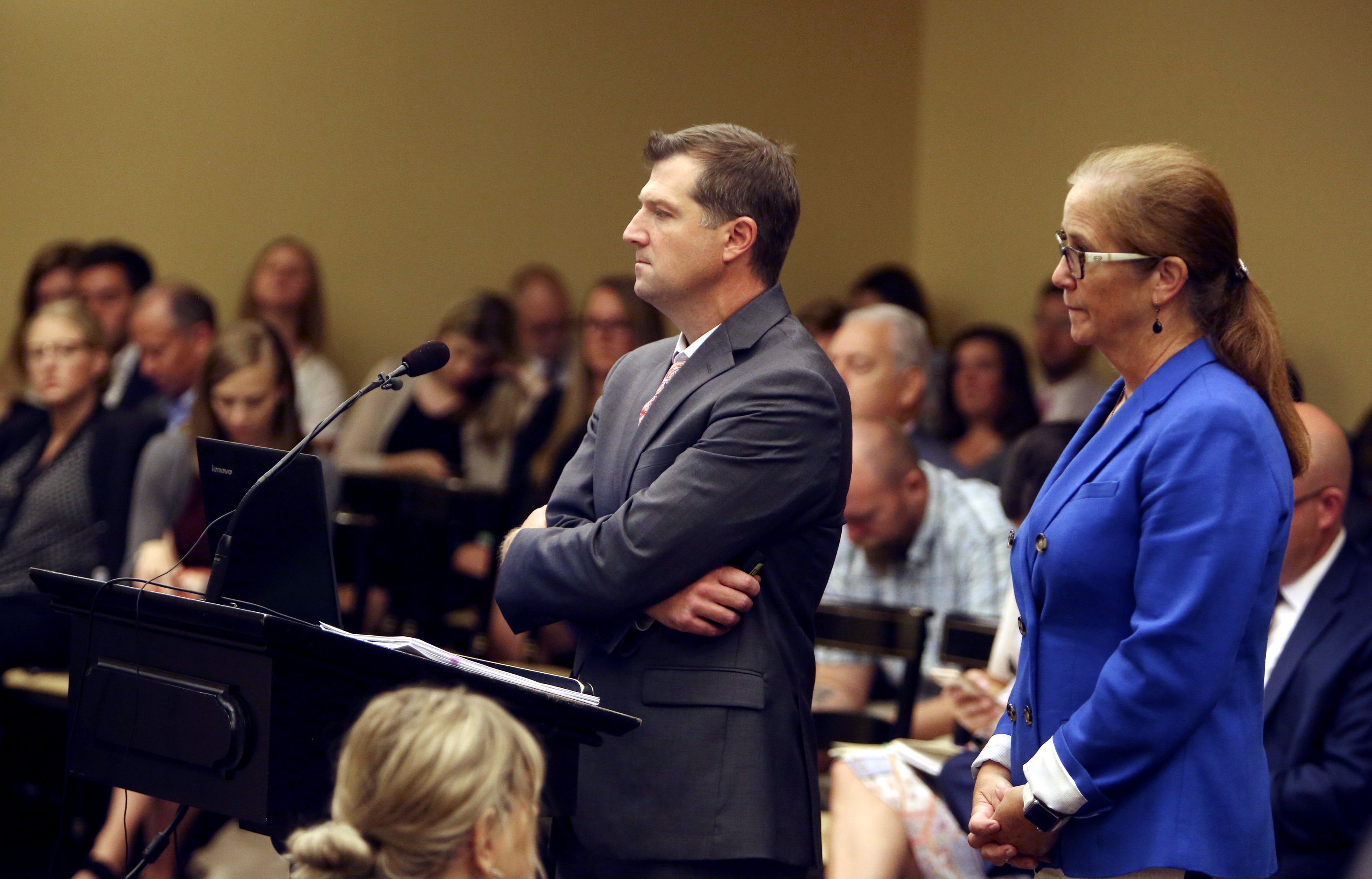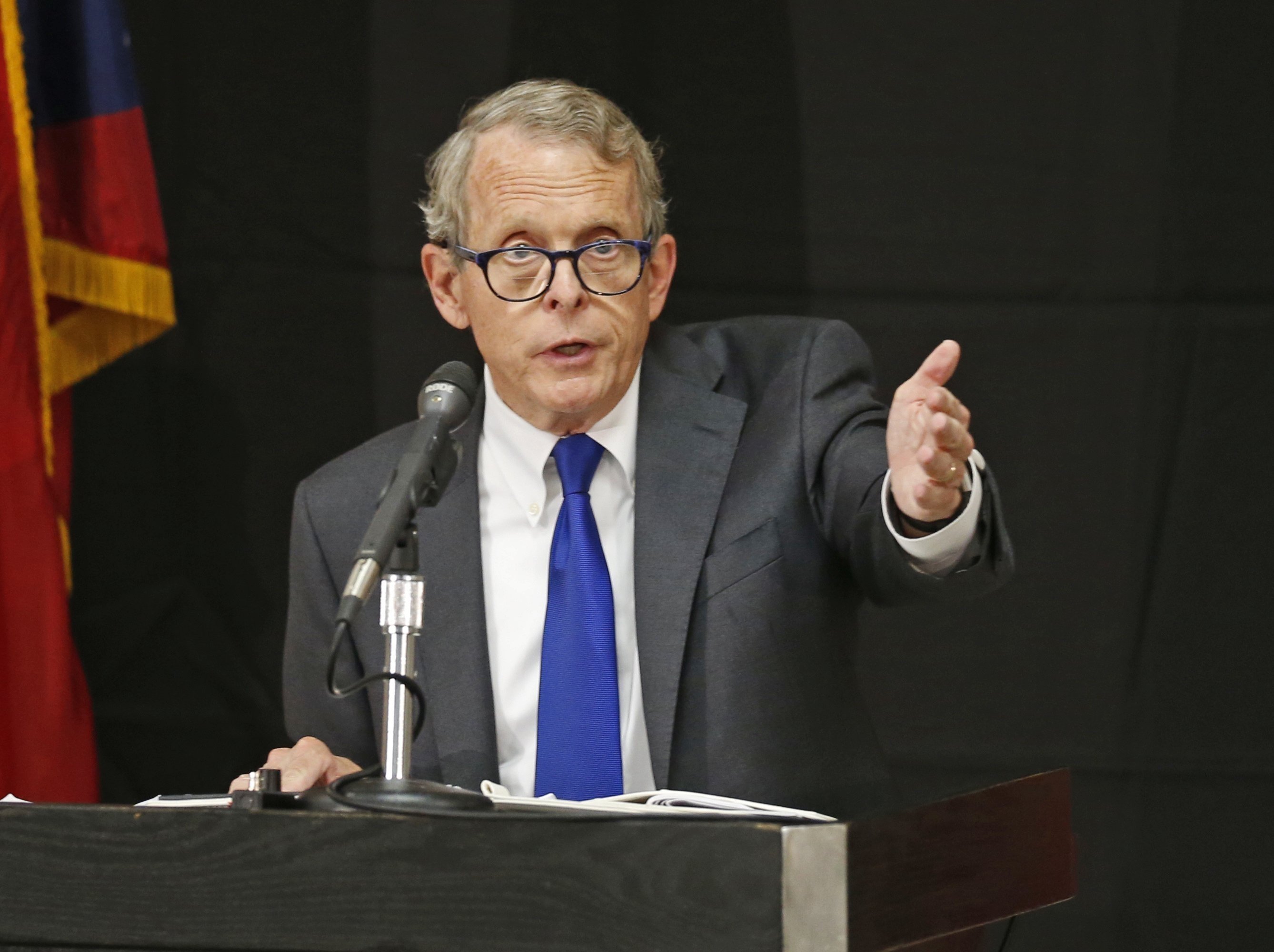State accuses pharmacy middlemen of 'driving up costs'
July 31, 2018
For the first time, state officials flatly accused pharmacy middlemen of "driving up costs" in the tax-funded Medicaid program and hiding their activities behind a veil of secrecy.
The new accusation comes in a Franklin County court filing that fight CVS Caremark’s attempt to keep secret a $50,000 report detailing how pharmacy benefit managers charged higher-than-industry-standard costs on prescription drugs for Medicaid patients.
"PBMs try to hide their activities, driving up costs and creating inefficiencies," assistant Attorney General Ara Mekhjian, representing the Department of Medicaid, argued in a motion to Common Pleas Court Judge Jenifer French.
"In theory, PBMs negotiate discounts and save money for (managed care) plans and, by extension, the Medicaid program. In reality, the picture is more complicated."
In July, CVS asked French for a temporary restraining to block Medicaid’s planned release of the 51-page report commissioned by the state, at least until proprietary information can be redacted.
French has scheduled a hearing on the matter for Tuesday.
In his motion, Mekhjian urged French to release the entire report.
"Nothing in the report is a trade secret of Caremark because Caremark failed to take efforts that are reasonable under the circumstances to maintain the secrecy of report that it claims would be devastating to its $100 billion-plus business. Because the information in the report not a trade secret, it is a public record and must be disclosed in response to public records requests," he wrote.
"If the court determines that the report contains Caremark trade secrets, ODM (the Ohio Department of Medicaid) respectfully requests that the court identify those trade secrets, direct ODM to redact them, and direct ODM to release a redacted report to the public."
Do you have a news tip?
If you are interested in sending The Columbus Dispatch investigative team working on the Side Effects series an anonymous tip or documentation, you can do so here:
Submit a news tip
Mehkjian also noted that CVS "signed off” on a contract between Medicaid and HealthPlan Data Solutions, the Columbus firm that prepared the report, giving them the discretion to allow Medicaid officials to disclose the report "to anyone, for any reason. Ultimately, that’s exactly what happened — HDS agreed to allow ODM to disclose confidential information in the report to anyone."
Attorneys for CVS could not immediately be reached for comment. But in CVS' request for the temporary restraining order, they said Medicaid officials "provided assurances proprietary information was only being provided to HDS and would not be further disclosed."
Mehkjian's contentions that CVS is driving up Medicaid drug costs and that the full report be released to the public is a reversal from earlier positions of Medicaid officials.
Patrick Stephan, director of managed care for Medicaid, downplayed lawmakers' concerns about drug costs at a legislative hearing in June, and Medicaid officials tuned down a request from the Dispatch and others to release the full report, saying it included proprietary information. A month later, officials announced that they changed their minds and would release it, prompting CVS to ask for a temporary restraining order.

According to the report's executive summary — which CVS agreed could be released — pharmacy benefit managers, or PBMs, billed taxpayers $223.7 million more for prescription drugs in a year than they reimbursed pharmacies to fill those prescriptions.
That 8.8 percent difference, known as the price spread, represents millions kept by CVS Caremark, PBM for four of Medicaid's five managed care plans, and Optum Rx, the PBM for the other. Largely pass-through operations, PBMs are employed to negotiate drug prices with manufacturers and process drug claims.
The study said PBM fees should be in the range of 90 cents to $1.90 per prescription. CVS Caremark billed the state about $5.60 per script; Optum charged $6.50 — three to six times higher.
